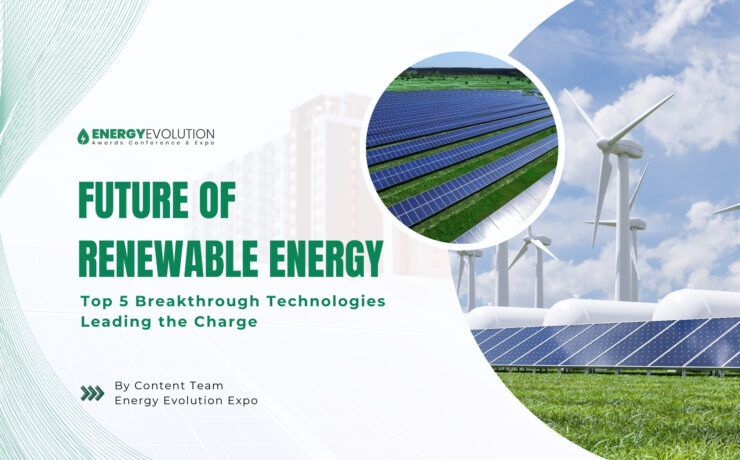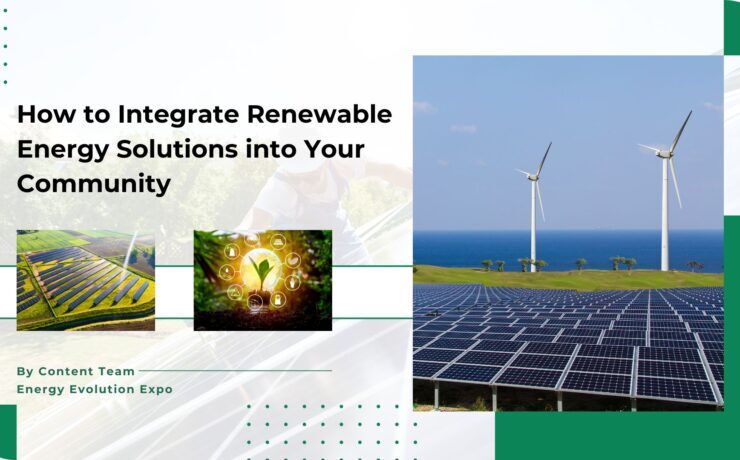Top Energy Storage Solutions for Renewable Energy

Energy Storage Solutions (Brief Definition)
Energy Storage Solutions encompass a diverse array of technologies designed to capture, store, and utilize energy efficiently. These solutions are pivotal in enabling the widespread adoption of renewable energy sources by addressing their intermittent nature. From lithium-ion batteries to redox flow batteries, these innovative technologies store excess energy generated from renewable sources like solar and wind. Energy Storage Solutions play a critical role in stabilizing grids, reducing reliance on fossil fuels, and promoting a cleaner, sustainable energy future.
Energy storage is rapidly advancing, with ongoing research focused on creating efficient, long-lasting solutions that are essential across the manufacturing, service, renewable energy, and portable electronics sectors. The need for effective energy storage technologies becomes crucial as the world increasingly relies on renewable energy to reduce carbon emissions and fossil fuel dependency. Renewable energy generation is intermittent, depending on natural factors like river flows, daylight, and wind consistency, while energy demand fluctuates throughout the day and year.
Storing excess renewable energy when generation surpasses demand ensures its availability during shortages, thus preventing waste and maintaining a balanced supply. By storing and using renewable energy, we reduce reliance on greenhouse gas-emitting fossil fuels and make full use of clean power generation capabilities. The current focus in the energy storage industry is on improving energy consumption capacities to ensure stable and economical power system operations. Key trends include moving away from traditional lithium-ion batteries towards innovative chemistries with better stability, density, and lifespan developing energy storage solutions that can efficiently capture intermittent renewable energy and scale it up to power large areas; and transitioning from centralized to flexible, portable distributed energy storage.

Energy Storage Solutions
Let’s have a look at some of the top Energy Storage Solutions available.
ADVANCED LITHIUM BATTERIES
Lithium-ion batteries are renowned for their portability, quick recharging, low maintenance, and versatility. Despite these advantages, they have significant drawbacks such as flammability, sensitivity to high temperatures, the need for overcharge or complete discharge protection, and aging issues. Moreover, the environmental impact of mining the components used in these batteries is substantial. Startups are addressing these challenges by enhancing the performance and longevity of lithium-ion batteries through innovative materials.
New battery chemistries like lithium polymer, lithium air, lithium titanate, and lithium sulfur are being developed to replace traditional lithium-cobalt electrodes. Some companies are focusing on recycling used batteries to support the circular economy. For instance, Green Li-ion, a Singaporean startup, has developed modular processing plants that use co-precipitation hydrometallurgical technology to recycle lithium-ion batteries and produce high-purity battery cathodes. This method not only enhances purity but also reduces production time, eliminating the need for battery sorting.
Echion Technologies, based in the UK, has created a proprietary anode material using mixed niobium oxide (XNO) technology. This material, designed with microcrystals to diffuse lithium ions, allows for super-fast charging without nanosized powders. Applications for these high-energy-density anodes range from consumer electronics to electric vehicles [In addition to these examples, Alsym Energy, a Boston-based startup, is developing non-flammable, lithium- and cobalt-free rechargeable batteries. Their water-based electrolyte and non-toxic materials make their batteries safer and more suitable for various applications, from utility grids to industrial uses.
Moreover, AI is increasingly being integrated into lithium-ion battery technology to optimize performance, predict failures, and improve battery management systems, thus enhancing efficiency and safety These advancements reflect a promising future for lithium-ion batteries, with significant implications for energy storage across various sectors.
LITHIUM ALTERNATIVES
Lithium batteries face environmental concerns and supply limitations, prompting companies to explore alternative battery materials for future energy storage solutions. Zinc-air batteries are emerging as a strong alternative due to zinc’s abundance, stability, and low toxicity. Sodium-sulfur batteries also present an efficient alternative, offering long lifespans, high energy density, and greater charge/discharge cycles while being made from relatively inexpensive materials. Other promising chemistries include aluminum-ion, magnesium-ion, nickel-zinc, and silicon-based batteries.
For instance, Offgrid Energy Labs, an Indian startup, has developed ZincGel, a proprietary zinc-based battery technology that uses a highly conductive zinc electrolyte and carbon-based cathode. This electrolyte is self-healing, temperature-stable, and non-evaporative, ensuring a longer lifespan and high efficiency. This technology is particularly beneficial for two-wheeler EV manufacturers seeking a safe, eco-friendly, non-flammable, and sustainable alternative to lithium-ion batteries.Altris, a Swedish startup, creates Fennec, a cathode material for sodium-ion batteries using patented low-temperature and pressure synthesis technology.
Fennec offers a low-cost, sustainable alternative to traditional electrode materials without compromising performance. This solution is easily integrated into existing production lines and is applicable in areas such as photochromic windows. Companies like Ambri are developing liquid metal batteries that use antimony and calcium. These batteries are designed for grid-scale energy storage, providing long-duration storage with low costs and extended cycle life. Similarly, Sila Nanotechnologies is working on silicon-based anodes to replace graphite in lithium-ion batteries, significantly increasing energy density and improving performance.
SOLID STATE BATTERIES
Solid-state batteries are a promising advancement in battery technology, replacing the flammable liquid electrolyte found in conventional batteries with a solid compound, such as polymers or organic compounds, that facilitates ion migration. These solid electrolytes offer higher ionic conductivity and improve operational efficiency, especially in extreme temperatures. Moreover, solid-state batteries support the use of high-voltage, high-capacity materials for manufacturing, resulting in greater energy density, portability, and shelf life. Due to their superior power-to-weight ratio, they are particularly well-suited for use in electric vehicles (EVs).
For example, SSB Incorporated, a US-based startup, specializes in polymer-based solid-state electrolyte materials. Their solid electrolyte, which combines polymers and ionic materials, enhances ion mobility and offers high energy density, improved electrochemical performance, and thermal stability. These solid-state separators enable the packaging of electrolytes into lithium batteries, suitable for various applications, including vehicles and aircraft.
Similarly, Theion, a German startup, develops solid-state crystal sulfur batteries using direct crystal imprinting (DCi) technology to create wafers from molten sulfur. Their proprietary solid-state polymer electrolyte operates within these wafers, with lithium metal foil serving as the anode.
The advantages of this technology include long cycle life, rapid charging, low cell cost, and enhanced safety, making it suitable for applications ranging from smartphones and laptops to energy storage in vehicles and aircraft. QuantumScape, a US-based startup that focuses on developing solid-state lithium-metal batteries. Their unique solid-state separator, made of a ceramic material, enables high energy density and rapid charging capabilities. Quantum Scape’s batteries have the potential to revolutionize electric vehicles by offering increased range and shorter charging times.
Another notable player in the field is Ionic Materials, also based in the US, which specializes in polymer-based solid-state electrolytes. Their polymer electrolyte materials exhibit high ionic conductivity and excellent stability, making them suitable for various battery applications, including electric vehicles, consumer electronics, and grid storage. Additionally, Solid Power, a US-based startup, is developing solid-state batteries using a sulfide-based electrolyte. Their solid-state batteries offer high energy density, improved safety, and long cycle life, making them ideal for electric vehicle applications.
BATTERY ENERGY STORAGE SYSTEMS (BESS)
Battery Energy Storage involves employing rechargeable batteries to store electrical energy for future use. These systems store surplus electricity during times of low demand or when energy from sources like solar and wind is abundant. Later, they discharge this stored energy during peak demand periods or when renewable sources are not actively generating power. Battery energy storage systems are indispensable for stabilizing electrical grids, facilitating the integration of renewable energy sources, offering backup power during outages, and enhancing the overall efficiency of electricity usage.
They find application across a wide range of settings, including residential, commercial, and utility-scale installations. Battery Energy Storage Systems (BESS) are essential for storing excess electricity generated by renewable sources during periods of low demand and discharging it during peak demand or when renewables are inactive. These systems play a critical role in stabilizing electrical grids, integrating renewable energy, providing backup power during outages, and improving overall electricity efficiency across various sectors.
Albion Technologies, a UK-based startup, specializes in Smart Battery Energy Storage Systems tailored for renewable energy providers, developers, and grid operators. Their product, Smart BESS, is a containerized system designed to optimize battery lifetime and deliver over 90% usable energy. It offers flexibility in deployment and integration with other units to meet diverse power and energy needs while complying with UK national grid standards.Similarly, Genista Energy, another UK-based startup, focuses on lithium-iron phosphate-based BESS design.
Their system, consisting of large containers with multiple battery strings, is scalable and suitable for providing power in remote areas. Genista Energy targets industrial and commercial buildings, offering renewable energy management solutions and an eco-friendly alternative to diesel generators.In addition to Albion Technologies and Genista Energy, other companies are making significant contributions in this field. For example, Tesla Energy offers Powerpacks and Megapacks, large-scale battery energy storage solutions designed for utilities, commercial, and industrial applications. These systems can be used for peak shaving, load shifting, and renewable integration, enhancing grid stability and reducing reliance on fossil fuels. Another notable player is Fluence, a joint venture between Siemens and AES, specializing in energy storage technology and services.
Their Advancion platform offers scalable, grid-connected battery storage solutions that help utilities manage peak demand, increase renewable energy penetration, and improve overall grid reliability.Furthermore, Sonnen, now a part of Shell, provides residential and commercial battery energy storage solutions, enabling homeowners and businesses to store excess solar energy and reduce reliance on the grid during peak times. Their systems also offer backup power capabilities, enhancing energy resilience at the individual level.
ENHANCED REDOX FLOW BATTERIES (RFB)
Redox flow batteries serve as versatile solutions for both fuel cells and rechargeable batteries, featuring interconnected tanks with electrolyte liquids and oppositely charged electrodes. Ions traverse between the tanks via a membrane, offering extended lifespans compared to lithium batteries as the membrane isn’t degraded by current flow. Their adaptable design and scalability make them ideal for large-scale integration of renewable energy, with ongoing advancements focusing on cost-effective redox chemistries with increased energy density.
XL Batteries, a US-based startup, specializes in saltwater-based flow batteries that are non-corrosive. By utilizing organic molecules from inexpensive industrial feedstock for charge storage, XL Batteries offer independent sizing through separate stack electrodes during charging and discharging. Their mild saltwater chemistry makes these batteries more affordable than vanadium flow batteries, appealing to the utility industry as a lithium-ion battery alternative. Similarly, StorEn Technologies, also based in the US, focuses on vanadium flow battery technology. Leveraging vanadium’s properties, they produce batteries with only one electroactive element, eliminating metal cross-contamination and mitigating decay and capacity loss issues seen in lithium batteries.
StorEn Technologies’ batteries find applications in telecom tower batteries, drawing power from both the electrical grid and renewable sources in off-grid locations. Another example comes from US-based startup ViZn Energy Systems, which specializes in zinc-based flow batteries. Their batteries utilize zinc and iron chemistry, offering advantages in terms of cost-effectiveness, safety, and environmental impact.
ViZn’s systems find applications in renewable energy storage, grid stabilization, and microgrid installations. ESS Inc., also based in the US, develops iron flow batteries for energy storage applications. Their iron flow battery technology utilizes simple, low-cost chemistry based on iron electrolytes, offering advantages in terms of safety, longevity, and sustainability. ESS Inc.’s systems are deployed in various settings, including utility-scale energy storage, renewable integration, and commercial and industrial applications.
SHORT TERM RESPONSE ENERGY STORAGE DEVICES
Short-term response energy storage devices (SDES), such as supercapacitors, flywheels, and superconducting magnetic storage systems, have a rich history of application. These devices, renowned for their ability to deliver rapid bursts of power, serve as linchpins in fortifying power grid stability during transient events like system disturbances, load fluctuations, and line switches.SDES are indispensable in averting power grid collapse due to voltage instability. Startups are integrating SDES into fuel cell applications to bolster the charge-discharge cycles of electric vehicles, while cities are intertwining energy storage systems with SDES, yielding notable enhancements in overall energy storage capacity and charge cycles.
For instance, KINETIC, which pioneers flywheel technology, offers solutions that harness rotational energy for short-term power needs. Additionally, companies like MAGNETIX leverage superconducting magnetic storage systems, providing high-density energy storage solutions with rapid response time. Similarly, GODI, an Indian startup, manufactures hybrid capacitors from biowaste-derived materials. These capacitors combine activated carbon and graphene to provide short-term peak power required for rapid charging. This solution extends from individual cells to modules, finding applications in automotive, renewable energy, and regenerative braking systems.
HYDROGEN STORAGE
Hydrogen storage is vital for its use as a clean and renewable energy source, with startups pioneering innovative methods to store hydrogen efficiently and safely.
One such example is H2GO Power, a UK-based startup that specializes in developing hydrogen energy storage solutions using a solid-state hydrogen carrier. Their technology involves storing hydrogen in a chemical compound, enabling safe and compact storage with high energy density. H2GO Power’s solid-state hydrogen storage systems have applications in various industries, including transportation, energy storage, and portable power. Another notable player in the field is HySiLabs, a French startup that focuses on producing solid-state hydrogen storage materials using a silicon-based process.
Their technology enables the storage of hydrogen at room temperature and low pressure, offering a cost-effective and scalable solution for hydrogen storage. HySiLabs’ solid-state hydrogen storage materials can be integrated into fuel cell vehicles, stationary power systems, and renewable energy storage applications. Hexagon Purus, a Norwegian company, specializes in designing and manufacturing high-pressure hydrogen storage tanks for fuel cell electric vehicles (FCEVs) and other hydrogen-powered applications. Their lightweight composite tanks offer high durability, safety, and storage capacity, enabling efficient and reliable hydrogen energy storage solutions for various transportation and industrial applications.
ADVANCED THERMAL ENERGY STORAGE (TES)
Advanced Thermal Energy Storage is essential for efficiently managing high levels of variable renewable electricity production by storing heat, both seasonally and short-term, for later use. Traditionally, heating companies have relied on insulated tanks to store hot or cold water, which is then used to meet increased demand during peak periods in district heating and cooling systems. Recent advancements have introduced innovative mediums like molten salts, eutectic materials, and phase-changing materials to store heat energy more effectively. Thermal energy storage finds widespread application in solar thermal systems, addressing the challenge of intermittency by enabling access to stored solar power during periods of low sunlight or at night.
For instance, HeatVentors, a Hungarian startup, specializes in Phase Changing Material (PCM)-based thermal storage systems. Their product, HeatTank, utilizes phase change materials to store thermal energy through melting and solidification processes. This approach not only saves space, energy, and costs but also enhances the efficiency of heating, ventilation, and air conditioning (HVAC) systems, improving stability and peak performance management. Similarly, Cowa Thermal Solutions, a Swiss startup, offers capsule-filled heat tanks for thermal energy storage. Their solution, BOOSTER CAPSULES, utilizes naturally occurring salts to provide three times the storage capacity of conventional water storage tanks without sacrificing capacity or stability.
This energy-dense heating tank reduces reliance on the main power grid, making it ideal for integration with photovoltaic (PV) systems in the distributed energy industry to ensure continuous heating. Additionally, companies like Azelio, based in Sweden, are pioneering the development of long-duration thermal energy storage systems using recycled aluminum as a heat storage medium. Their technology enables cost-effective and scalable storage of renewable energy, contributing to grid stability and sustainability goals.
DISTRIBUTED STORAGE SYSTEMS
Traditional energy systems are typically centralized, posing risks of grid failures during periods of high demand. Distributed storage systems, however, offer a solution by allowing individual facilities to generate and store energy on-site for their use, reducing reliance on centralized infrastructure. These systems also enable energy producers to sell excess energy back to the grid. Distributed energy storage solutions like electric vehicles (EVs), microgrids, and virtual power plants (VPPs) play a key role in reducing the need for coal, oil, and gas energy generation.
Additionally, they promote greater reliance on renewables by integrating local energy storage solutions such as rooftop solar panels and small wind turbines. For instance, Belgian startup MET3R is advancing Vehicle-to-Grid (V2G) management through platforms like ZenCharge, ZenSite, and ZenGrid, which utilize artificial intelligence (AI) to optimize fleet charging and minimize the grid’s impact. These platforms also offer insights into managing loads related to EV charging, benefiting energy distribution companies by providing real-time monitoring of distributed energy assets (DERs) on low-voltage networks.
An Australian startup Karit provides virtual power plants (VPPs) by aggregating distributed energy assets such as generation and storage systems. By consolidating these assets, energy retailers can ensure efficient power supply to customers while channeling surplus energy into the market. VPPs enable predictive energy storage and management, benefiting energy retailers and multi-site organizations alike.
One example comes from US-based startup Stem, which offers distributed energy storage solutions for commercial and industrial customers. Their systems use predictive analytics and artificial intelligence to optimize energy usage, reduce demand charges, and provide backup power during peak periods. Stem systems help customers save on energy costs while enhancing grid stability. Another example is Orison, a US-based company that offers plug-and-play energy storage solutions for residential and small commercial properties. Their modular batteries can be easily installed and expanded, allowing homeowners and businesses to store excess energy from renewable sources like solar panels and use them when needed.
Orison’s systems help reduce electricity bills and promote energy independence. Additionally, Enel X, a global energy company, provides distributed energy storage solutions through its JuiceNet platform. JuiceNet allows customers to manage and optimize their energy usage, integrate renewable energy sources, and participate in demand response programs. Enel X’s solutions help reduce energy costs, lower carbon emissions, and improve grid reliability.
ENERGY STORAGE As A SERVICE
“Energy storage as a service” refers to a business model where companies provide energy storage solutions to customers on a subscription or pay-for-use basis, rather than requiring them to purchase and maintain the storage infrastructure outright. This approach allows businesses to access the benefits of energy storage, such as backup power, demand management, and grid support, without the upfront capital investment typically associated with purchasing storage systems.
Customers pay a periodic fee for the use of the storage service, which can include installation, maintenance, and monitoring of the storage system. This approach provides maximum flexibility, allowing businesses to adapt to changing market conditions. Energy Storage as a Service also supports utilities in managing congestion, addressing peak demand, and enhancing grid resilience. Additionally, it benefits consumers in remote areas with limited grid connectivity by improving grid efficiency and flexibility.
For example, Danish startup Hybrid Greentech provides HERA, an AI-driven energy storage management platform. HERA combines optimization models and machine learning algorithms to optimize the operation of energy storage assets. This technology enables detailed expense modeling during the initial stages of project development, helping businesses make informed investment decisions across various industries, including hybrid power plants, microgrids, and electric mobility.
Similarly, Renon India offers ARK, a smart battery management system designed for commercial and industrial applications. ARK ensures the safety, efficiency, and performance of battery packs through passive cell balancing and temperature sensing. These systems are particularly suited for storing solar energy in various settings.
Conclusion
Continued efforts and innovations in energy storage solutions are essential for maximizing the effectiveness of renewable energy sources. They address the intermittent nature of renewables, ensuring a reliable power supply. By storing excess energy, they optimize renewable energy utilization, reduce reliance on fossil fuels, and improve grid stability. Innovative technologies from startups are driving progress in energy storage, paving the way for a cleaner and more sustainable energy future.
To facilitate understanding of the latest developments and trends in the Renewable energy Industry, various Conferences and Expos, which bring Industry leaders together, are crucial. The Energy Evolution Awards, Conference, and Expo organized by Next Business Media is making its debut in Spain in 2025. It will be a leading forum dedicated to honoring excellence in Energy Technology, showcasing innovations, and fostering collaborations.
The events unite industry leaders, and visionaries to explore the latest advancements, tackle key challenges, and shape the future of Energy. The Energy Evolution Awards, Conference, and Expo will celebrate outstanding achievements, promote sustainable practices, and drive the Energy Industry forward into a technologically advanced sustainable era. Energy Evolution Awards, Conference, and Expo will be a platform for cultivating innovation and shaping a brighter, more efficient energy landscape.






